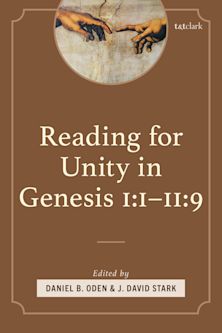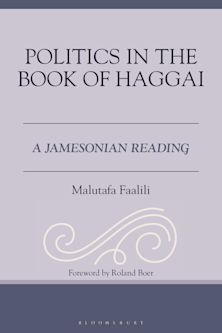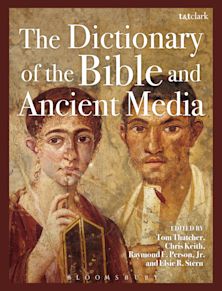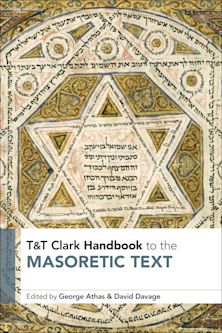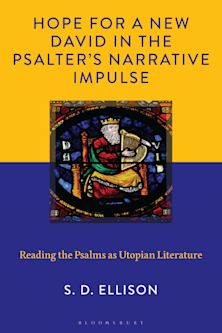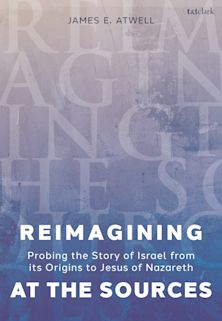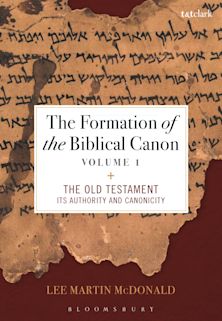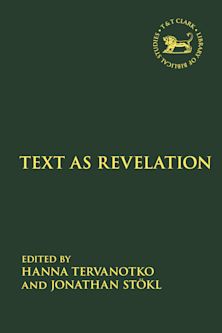- Home
- ACADEMIC
- Biblical Studies
- Old Testament / Hebrew Bible
- Disembodying Narrative
Disembodying Narrative
A Postcolonial Subversion of Genesis
Disembodying Narrative
A Postcolonial Subversion of Genesis
You must sign in to add this item to your wishlist. Please sign in or create an account
Description
Long believed to bear witness to the beginning of all life, the Bible's first book, Genesis, has been plumbed by a cornucopia of theologies and philosophies for ideas about social organization, human relationships, class, gender and gender roles, marriage, land rights, private property, and so much more. For many readers, assumptions about a divine creator, whose eye is cast upon a favored community, are at the heart of Western societies and politics and reside at the core of many national foundation myths. Yet despite all this, Genesis is not a frequent subject of postcolonial analyses seeking to expose the rootedness of inequalities within dominant social, political, and economic institutions. At times provacative, at others conciliatory, Jeremiah Cataldo explores how postcolonialism's rudeness, anger, and subversiveness are challenges to dominant traditions of interpreting Genesis and how those traditions influence who we are, how we relate to each other, how we read the Bible, and why, despite an increasingly globalized and interconnected world, we passionately cling to what divides us.
Table of Contents
Chapter 2: Adam, Eve, and Steve's Serpent
Chapter 3: Colonizing Cain
Chapter 4: Highbrow Hamitic Hypothesis
Chapter 5: Flooding the world and saving a few
Chapter 6: Inverting the Tower of Babel
Chapter 7: Father Abraham sentenced a son, or two
Chapter 8: A(n incestual, pedophilic) cave-dwelling Lot
Chapter 9: Sarah's (colonizing) laughter and Hagar's (colonized) tears
Chapter 10: Jacob and Esau
Chapter 11: Joseph from lowly status into authoritative body
Conclusion: Taking stock of the trajectory of Genesis\
Product details
| Published | 21 Nov 2023 |
|---|---|
| Format | Ebook (Epub & Mobi) |
| Edition | 1st |
| Extent | 224 |
| ISBN | 9781978714984 |
| Imprint | Fortress Academic |
| Series | Dispatches from the New Diaspora |
| Publisher | Bloomsbury Publishing |
About the contributors
Reviews
-
This important study brings postcolonial thought back to Genesis, rather than the obvious texts of Exodus or prophetic works … Indeed, Cataldo also employs a call-and-response method to challenge and comment upon the ideas themselves throughout.
Review of Biblical Literature
-
This volume contains a number of self-contained chapters that can become assigned reading in courses or segments of a syllabus designed to address the impact of the Bible, in Western culture primarily, over the past 300-odd years. Any of them are sure to stimulate lively discussion and debate and accomplish the author's goal of reassessing the meanings we assign to biblical texts and the objectified values and assumptions about truth that have resulted from their association with the Bible.
Diana Edelman, professor emerita, University of Oslo
-
Scholars interested in what a neo-postcolonial approach to biblical studies may entail will surely find this book very helpful. The chapters following the introduction can serve well as a starting point for in-class, thoughtful debates and learning among undergraduate (and graduate) students in academic institutions, particularly, but not only, in the USA.
Ehud Ben Zvi, professor emeritus, University of Alberta
-
This work aims to challenge the conservative underpinnings of marriage, gender, family, and the right to the promised land in the Book of Genesis, which serve as fundamental pillars of Western societies. A postcolonial reading of the selected Genesis passages seeks to challenge assumptions within the social and religious realms, not solely for subversion or deconstruction, but rather to create an inclusive space for diverse human identities and dignities beyond dominant frameworks. The reading strategy employed here is subversive and provocative, not as an attempt to undermine the Bible or religion but to prompt productive conversations about societal assumptions, ideologies, and traditions.
A valuable contribution to the expanding body of literature in the field of postcolonial biblical criticism. This book possesses a remarkable theoretical sophistication that is sure to captivate readers who have a keen interest in various scriptural approaches and hegemonic criticism.R. S. Sugirtharajah, University of Birmingham, UK
-
In Disembodying Narrative: A Postcolonial Subversion of Genesis, Jeremiah Cataldo unsettles any simplistic notions about the Bible's first book and how it should be read. Attentive to both the Bible's history and its history of reception, Cataldo exposes how the Bible and subsequent, particularly Christian, interpretations have disfigured, even erased, the bodies of marginalized characters only to reconfigure them to suit colonizing interests. With irreverent candor and the skill of a seasoned teacher, Cataldo tracks a history of scandalous biblical interpretation that has damaged bodies, minds, and societies. Serious students of the Bible will find themselves reoriented by this thoughtful, impassioned appeal for a less naïve, more responsible reading of this most important book.
Danna Nolan Fewell, John Fletcher Hurst Professor Emerita of Hebrew Bible, Drew University

ONLINE RESOURCES
Bloomsbury Collections
This book is available on Bloomsbury Collections where your library has access.














